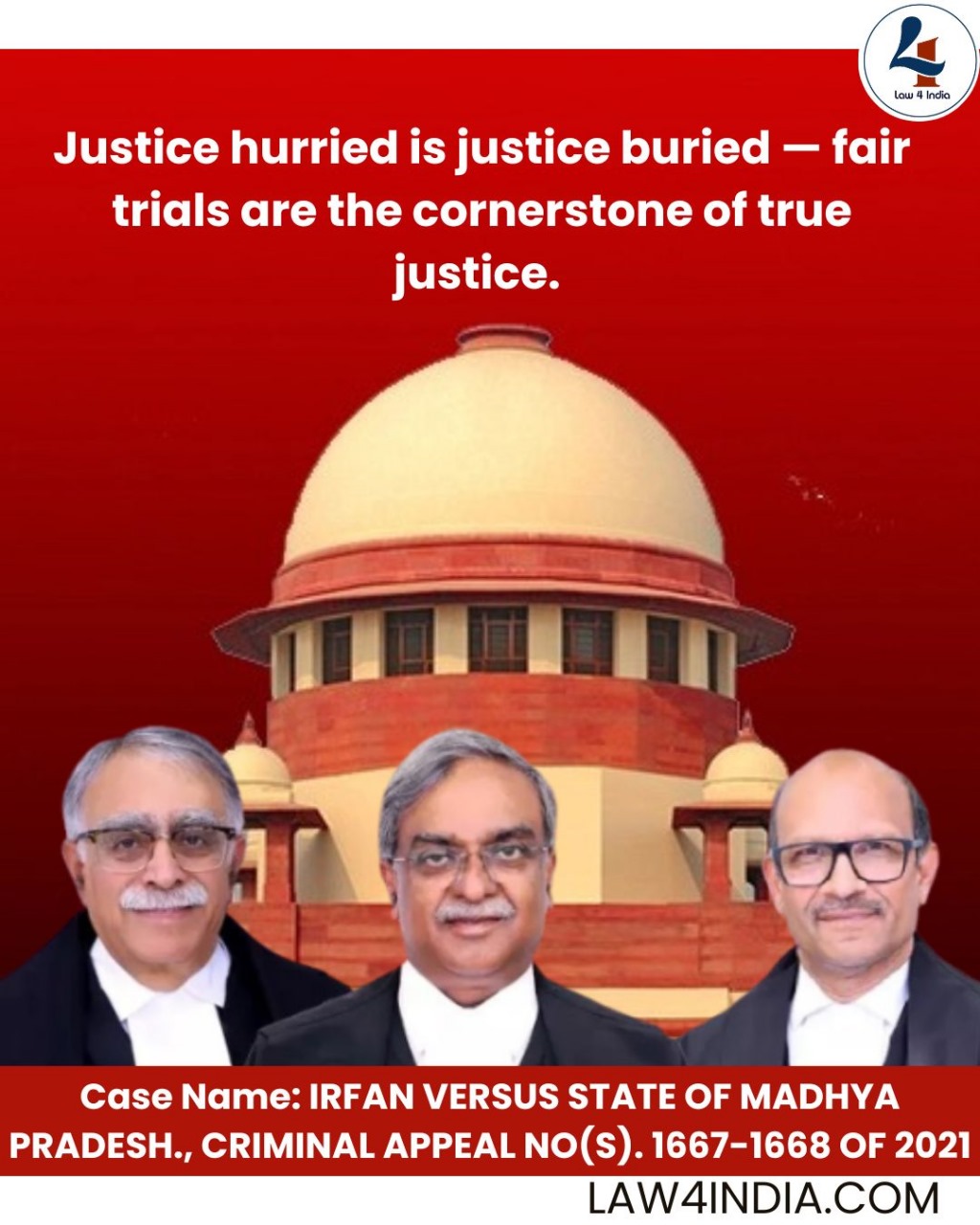–By Garima Bhardwaj
The Supreme Court of India recently overruled the death penalty of the appellant, ruling that the trial was conducted in abruptly and the justice was compromised due to the trial court’s failure to examine scientific experts while completely relying on a DNA report. The Court emphasized on the fact that in cases involving capital punishment, a fair trial and proper opportunity for the accused to defend themselves are non-negotiable.
A Bench comprising Justices Vikram Nath, Sanjay Karol, and Sandeep Mehta observed that the trial was completed in a very short time period of less than two months from the case’s registration, which demonstrated a lack of due process. The case involved charges of kidnapping and attempted murder of a minor girl studying in the 3rd standard. The appellants were sentenced to death under Section 376(DB) of the IPC, which states the punishment for gang rape of a woman under 12 years of age. The High Court later upheld the death sentence, which prompted the appellants to challenge the verdict in the Supreme Court.
One of the major issues raised was that the prosecution had relied heavily on a DNA report without presenting the scientific experts who conducted the profiling. The defense had looked for complete laboratory documents and the examination of these experts to verify the report’s authenticity. The Supreme Court noted that the DNA profiling report was the foundation of the prosecution’s case, and the non-examination of experts created significant doubt about its evidentiary value. This failure, according to the Court, amounted to a miscarriage of justice.
The Supreme Court referred to the case of Naveen @ Ajay v. State of Madhya Pradesh, in which the absence of scientific expert testimony led to a retrial. The Court said that the expert witnesses must be examined in cases where DNA evidence plays a crucial role in determining guilt. In light of this, the Court set aside the trial court and High Court’s decisions and remanded the matter for a fresh trial.
Moreover, the Court directed the trial court to summon and examine the relevant scientific experts as court witnesses, ensuring both the prosecution and defense have the opportunity to cross-examine them. It also emphasized the importance of competent legal representation for the accused. If they are unable to appoint a lawyer of their choice, the court must provide a defense counsel with at least 10 years of experience, as per the guidelines established in the case of Anokhilal v. State of Madhya Pradesh.
Furthermore, the Supreme Court ordered a four-month timeline for the trial’s completion and clarified that its ruling was limited to procedural fairness. It emphasized that the trial court must conduct the retrial independently, without being influenced by the Supreme Court’s observations.
Ultimately, the Supreme Court allowed the appeal, setting aside the earlier decisions and reinforcing the principle that due process must be strictly followed in cases involving severe punishments like the death penalty.
Case Name: IRFAN VERSUS STATE OF MADHYA PRADESH., CRIMINAL APPEAL NO(S). 1667-1668 OF 2021
Garima Bhardwaj is a 2nd Year Law Student at University of Lucknow

